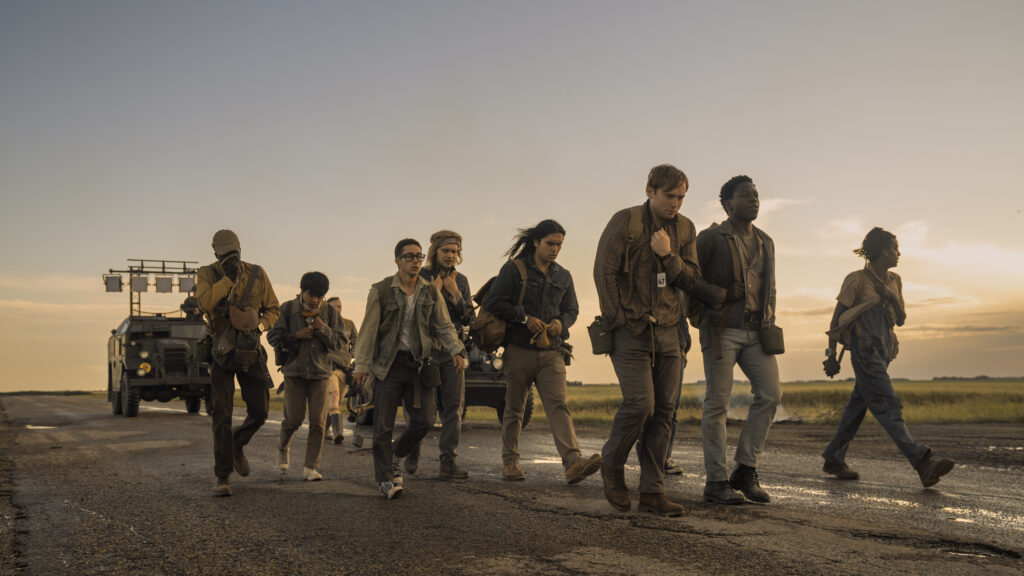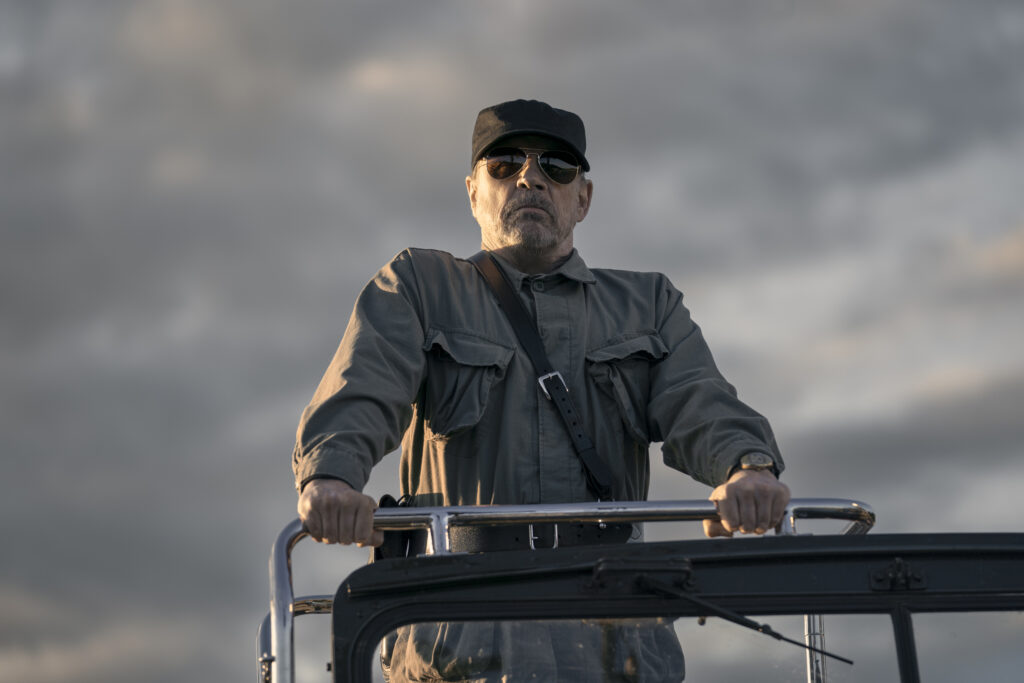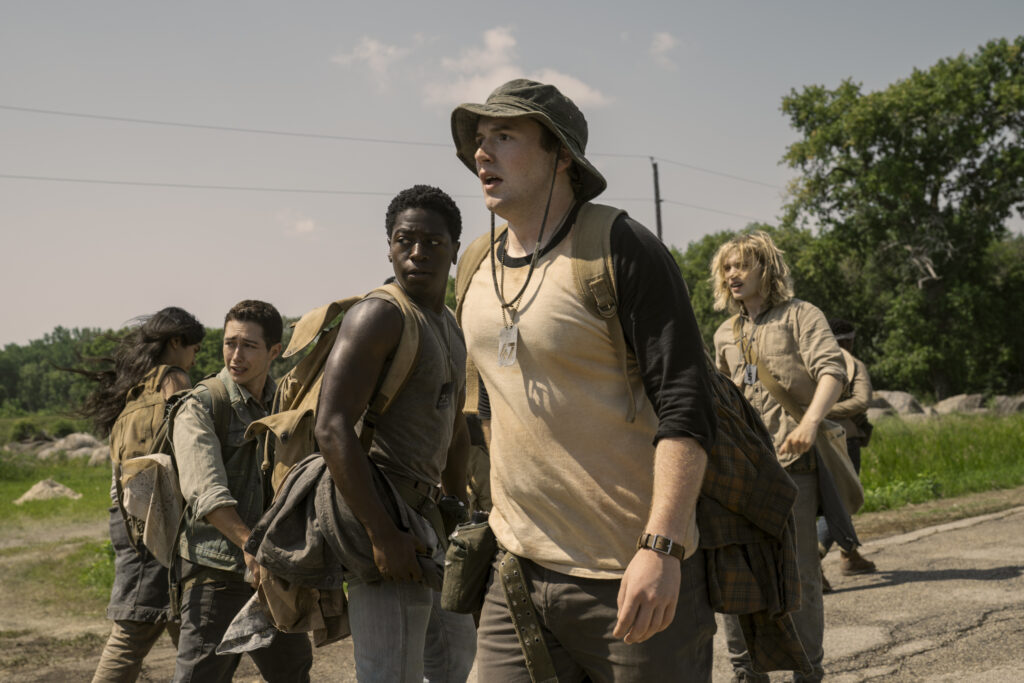Stephen King’s novel finally comes to the big screen with ‘The Long Walk’
Stephen King’s ‘The Long Walk’ comes to the big screen
Review: This gory, gut-wrenching and gripping dystopian thriller has audience members on the edge of their seats.

The Long Walk may indeed be the best horror movie of the year. Director Francis Lawrence’s adaptation of the famous thriller novel is filled with guts and gore, and uses stellar performances and camera work to tell an important and haunting story.
The Long Walk is based on Stephen King’s 1979 novel of the same name, taking place in a dystopian, totalitarian America. The “walk” is an annual event where 50 teenage boys walk as long as they can with no finish line; their only choice is to walk or be executed. The winner is honored with money and is intended to serve as a role model for work ethic to the young boys and men in the struggling nation.
The walk is set under gruesome conditions — if a walker walks under 3 miles per hour, they get a warning. Three warnings, and they get a “ticket,” which is being shot in the head. Participants can’t sleep or stop until one winner remains.
The movie itself honors the novel (originally written as an allegory for the Vietnam War draft) while also working to make itself more applicable to a modern-day audience and political climate.
The cast of the film is composed of young and mostly unknown actors portraying the 50 boys participating in the walk. The only well-known actor is Mark Hamill, who plays the role of the authoritative and brutal Major.

The young actors are truly what make the film shine, as they completely drive the narrative. Throughout the movie, they provide a sense of authenticity, laughing amongst themselves and making crude jokes. They make mistakes, they give in to their anger and emotions, reaping the consequences. The boys feel like three-dimensional characters whom audience members can easily relate to, making it all the more haunting when they are brutally killed on-screen, one by one.
Standout performances include Charlie Plummer as Gary Barkovitch, a somewhat sadistic young man who attempts to gain attention by taunting and tormenting the other boys. Plummer crafts a narcissistic and unsettling character who is easy to hate while also peeling back his layers to reveal that lying behind his dark and obnoxious demeanor is a lonely and unwell boy trying to seek approval.
Cooper Hoffman and David Jonsson as Raymond Garraty and Peter McVries, respectively, are truly the heart of the movie, curating a strong and sympathetic bond between their characters whose friendship is doomed by the narrative.
The movie often takes direct passages and quotes from the novel and generally follows the original plot. However, there are adjustments to the film adaptation, such as the book’s 100 walkers lowered to 50, with each boy representing a state.
This change appears to be purely for logistical purposes, as it is much easier to handle 50 actors on a continuously moving set than the original 100. By cutting the number of characters in half, they share combined traits of many of their book counterparts. The smaller number of characters allows the audience to get to know some of them better, but the majority of them go unknown and unnamed, making them just another face whose life is brutally cut short.

Another change made for the movie adaptation is the cutting of King’s vulgar language. The original novel featured many of the boys tossing around sexist dialogue, joking about performing sexual acts on their partners or random female spectators. Most of these comments come from Garraty’s inner monologue, with many thoughts centered around his girlfriend Jan, who is absent from the film adaptation.
The movie also omits much of the racist language tossed around by Barkovitch. The comments offered no point to the plot, and the movie’s omission of them modernizes the story and avoids alienating audiences.
The biggest difference in the adaptation is that the movie creates an entirely new ending, one that depicts a different winner. This change leaves the movie and the novel with two different endings (albeit both open-ended) that have two distinctively different tones. The change of the winner mostly serves as a twist meant to shock audiences, but also allows the movie to allude to more modern political issues.
The Long Walk is an unsettling adaptation that leaves audience members on the edge of their seats for the entire duration of the film. The movie truly shines due to its authenticity and realism, allowing audiences to easily relate to the world and characters, making the story even more haunting.
